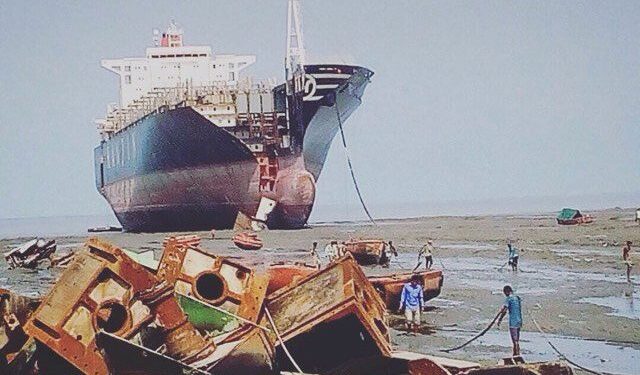There were a total of 227 ships broken in the third quarter of 2017, and 124 of these ships ended up on beaches in South Asia ‘for dirty and dangerous breaking’, NGO Shipbreaking Platform informed.
In addition, between July and September, one worker lost his life at a shipbreaking yard in Alang, India. Another worker was reported seriously injured in Chittagong, Bangladesh.
Moreover, the prices offered for ships this third quarter have been high in South Asia, especially when compared to the figures of the first half of the year. Monsoon rains caused a shortage of local product being available to the domestic steel mills and have, therefore, driven prices for end-of-life ships up. Whilst a South Asian beaching yard can pay about USD 400/LDT, Turkish yards are currently paying slightly less than the USD 250/LDT offered by Chinese yards.
Further, the NGO noted that Greek ship owners have sold the most ships to the beaching yards with 11 beached vessels this quarter, followed by South Korea and Singapore with 6 vessels each. Shipping companies from the United States sold 5 vessels.
Notably, no tanker was sold to the Gadani yards in Pakistan, following the ban on tankers due to the major explosion on the ship ACES on the 1st of November of last year.

Although 33 out of the 124 beached vessels this quarter were European-controlled, only three of these had a European flag when they arrived on the beach. All ships sold to the beaching yards pass via the hands of scrap-dealers, also known as cash-buyers, that often re-register and re-flag the vessel on its last voyage.
In this regard, flags of convenience, in particular those that are grey- and black-listed under the Paris MOU, are used by cash-buyers to send ships to the worst breaking locations. Almost half of the ships sold to South Asia this quarter changed flag to the grey- and black-listed registries of Comoros, Niue, Palau, St. Kitts & Nevis, and Togo just weeks before hitting the beach. These flags are not typically used during the operational life of ships and offer ‘last voyage registration’ discounts. Importantly, they are grey- and black-listed due to their poor implementation of international maritime law.






























































